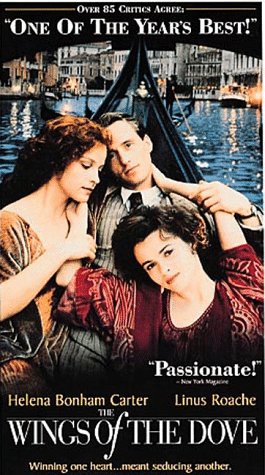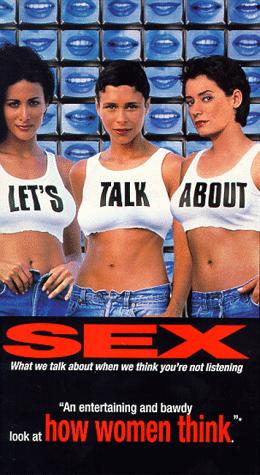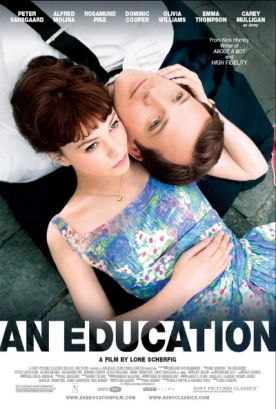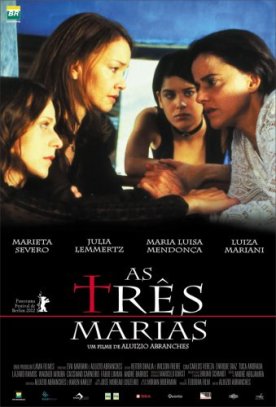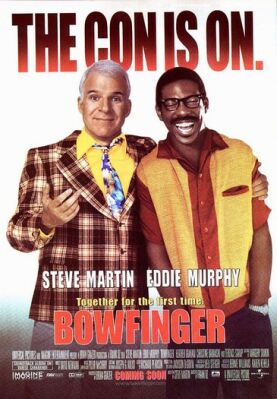Random Hearts
The best line in Random Hearts, adapted from the novel by Warren Adler
by Kurt Luedtke and directed by Sydney Pollack, comes when the frail-looking but impossibly beautiful novice congresswoman, Kay Chandler (Kristin Scott-Thomas) tries to
get tough with the tough old cop, “Dutch” Van Den Broeck (Harrison Ford), from
the District of Columbia Police Department’s Internal Affairs division. “Don’t
f*** with me!” she says to him, though she can’t help saying it with a
wince.
Dutch looks at her a moment quizzically with that Harrison-Ford smile and
says, “If you don’t like that word, don’t use it.”
The same might be said to the filmmakers: If you don’t like romance, don’t
make one. But they have made one, or what is obviously meant to pass for
one, and the result, though it has some virtues, is curiously unengaging. The
ideal that it seems to celebrate is not one of love and its twin brother, trust,
but a kind of partnership in suspicion, born of the fact that Dutch’s wife and
Kay’s husband have been having an affair. This is only revealed to them by the
fact that the airplane in which the adulterous lovers were traveling to an
out-of-town assignation crashes, killing them both. The surviving partners are
attracted to each other and, of course, have the bond not only of shared grief
but shared betrayal.
Yet they cannot but doubt themselves. As Kay says when they finally come
together sexually: “There are so many reasons I might be doing this.” Now, in
other words, they cannot trust even themselves. Accordingly, the ending seems to
celebrate only friendship between those who know they can no longer love. When
the going gets tough — Dutch gets shot by a bad cop (Dennis Haysbert) he is
trying to put away; Kay loses the election to an unscrupulous right-wing (what
other wing would such a man be from?) drug-store baron — they split up. When
they meet again in the final frames it is to promise to get together some time
and take in a movie. She’s going back to New Hampshire. Where are they going to
meet for the movie? Poughkeepsie?
It’s a strange kind of romance but about what you’d expect in a world where
everybody else seems to have anticipated the formerly naïve heroes in
taking infidelity for granted. On the web-site for this movie, there is a quiz
called “Investigate Your Mate” — which I guess is all part of romance for
the nineties. At one point in the movie itself a colleague of the late Mrs Van
Den Broeck explains to the widower why she turns a blind eye to her
husband’s infidelities. It is because she doesn’t want to lose “romance” in her
life, she says: “If I thought all that was over, I’d feel old.” Her idea of
“romance” seems to be as bizarre as the filmmakers’. And when Dutch asks her if
she would tell him if she had known of his wife’s affair — even now that she
is dead — the woman answers firmly, “No.”
This seems consistent, not only for her but for the movie too, whose implicit
assumption is that the only way for romance to survive is by means of denying
reality. This is a remarkably cynical view and only one, if the chiefest, among
this movie’s problems. Others include the sub-plot, involving Dutch’s pursuit of
Mr Haysbert’s well-acted villain and the political race going on in the
background, in which Kay is progressively more disgusted by the spin-doctoring
she is subjected to by a team of consultants headed by Mr Pollack in a cameo
role. A case could be made that both of these strands in the tapestry make their
own contribution to the overall effect by reinforcing the central cynicism with
cynicism on both sides. True love is as unlikely as honest cops or sincere
politicians. But for those without a taste for such theatrical, almost campy
pessimism, this can hardly be a recommendation.
As a sidelight on the above, notice that Harrison Ford is wearing an earring
these days — one of those little jeweled studs in one ear. We used to think
of him as the nearest thing to a latter day Gary Cooper or Clark Gable, the
embodiment of the standard of unbejeweled masculinity of twenty or thirty years
ago, when he became a star. Then he was a stud, but he didn’t wear one,
unless it was in his shirt front. Now, at 57, he’s still doing the tough guy
stuff — his use of a bowling ball in a fist-fight with Mr Haysbert is
particularly pleasing and quite witty — but he’s also and rather belatedly,
you might think, cultivating this hip image which doesn’t suit him. Somehow one
doesn’t think of Gary Cooper or Clark Gable as having had mid-life crises. But
then, neither would they have watched with a rueful smile as the disappointed
and delectable Miss Scott-Thomas boarded her plane back to New Hampshire.
Romance is only dead because there’s nobody left who’s man enough to bring it
back.
Discover more from James Bowman
Subscribe to get the latest posts to your email.


